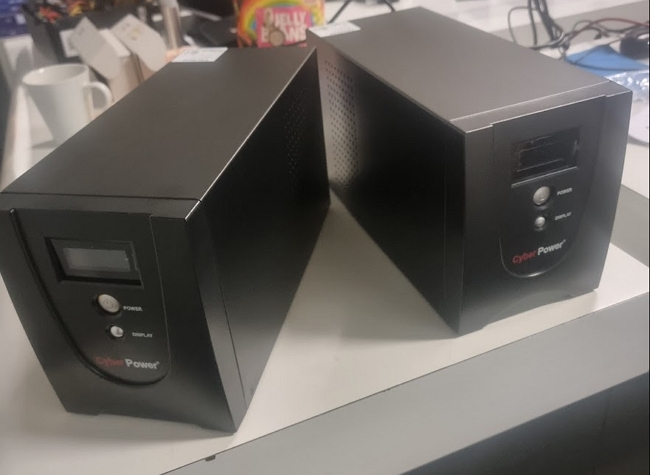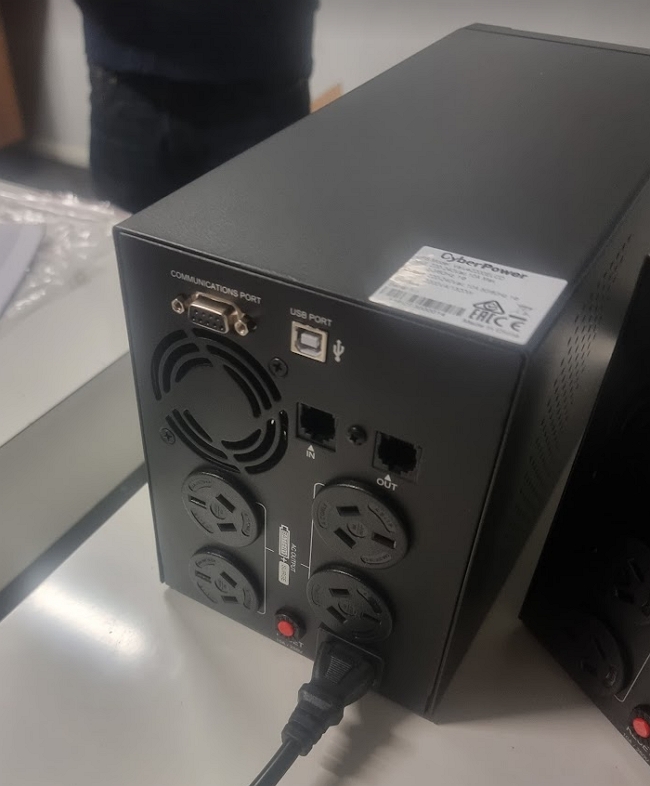Point of Sale Power Protection for POS Systems

For modern brick-and-mortar retail stores, having reliable, uninterrupted power for point-of-sale (POS) systems is often critical. POS systems today use electricity, and nothing about them likes lousy power. When a power outage, surge or fluctuation hits a retail store, it can knock out your POS systems, often bringing the shop to a grinding halt.
Even minor power blips we have seen have caused POS systems to crash. Worse voltage spikes and dips can permanently fry sensitive POS hardware and electronics. And sudden power loss threatens vital business data, with no time for proper shutdown.
An uninterruptible power supply (UPS) tailored for retail POS systems can be essential to maintain continuity when utility power fails. A quality UPS system conditions electricity provides emergency backup power, and protects POS uptime.
Significant Benefits of a Retail UPS
The core function of a retail UPS is to seamlessly provide battery backup power when the mains electricity cuts out. This keeps POS systems, cash registers, credit card readers and more running during an outage so shops can continue processing sales. This prevents frustrating customers with halted service and protects revenue.
Beyond outage protection, a UPS conditions incoming electricity, regulating voltage and filtering "noise". This provides clean, stable electricity that prevents premature failure of sensitive POS components. By defending POS hardware from power anomalies, a UPS extends the electronics' lifespan.
During extended power failures where backup time is exceeded, a UPS will allow you to bring the POS systems to be gracefully shut down. This prevents the data corruption or loss that can occur from abruptly cutting power. This orderly shutdown saves critical business records and information.
By keeping service uninterrupted during outages and preventing damage from power fluctuations, a proper retail UPS pays for itself many times over by maximising uptime. The cost benefits include avoiding lost sales, costly POS repairs, and dissatisfied customers.
Types of UPS Systems

There are many different types of UPS on the market. The one we recommend above has a battery and a surge protector. It has an extended life and can protect four machines.
Getting the Most from a Retail UPS
To maximise the performance and lifespan of a retail UPS system:
-
Check your requirements and what you need. The size of the UPS depends on what you need. If the UPS is not big enough, it will be a problem. It is important that you correctly size the UPS for your specific needs. Undersized UPS units can lead to inadequate protection and shortened battery life. This can be a big problem with UPS powerboards which often do not have enough power.
-
Let the UPS run for 24 hours before installing.
-
Ensure proper installation and maintenance according to the manufacturer's instructions.
-
Once installed and your POS system is running, turn the power off to ensure it works correctly. I have seen people badly fit a UPS to a POS System, attaching the wrong components. I advise against connecting mechanical devices like printers as they can cause power spikes, which may affect UPS performance.
-
Replace batteries periodically - most last 3-5 years under ideal conditions.
-
Test the UPS unit under full load quarterly by unplugging it and running equipment on battery power.
-
Keep the UPS as cool as possible at all times; heat ruins batteries.
-
Avoid connecting mechanical devices like printers, which can cause power spikes.
-
Utilise UPS monitoring software and connectivity features for alerts and graceful shutdown. If something goes wrong, it may tell us why it went bad.
Conclusion
A dedicated UPS unit tuned for POS systems is indispensable for reliable retail store power. When choosing a UPS, retailers must carefully assess their POS environment and requirements. Following UPS best practices for retail installations ensures clean backup electricity and recoups the investment through maximising uptime and equipment longevity. The right UPS strategy keeps the transactions flowing during outages and fluctuating mains power.
Note: This article was initially written by me in 2018. However, much has changed since then, so I rewrote this article after researching to reflect current conditions.


